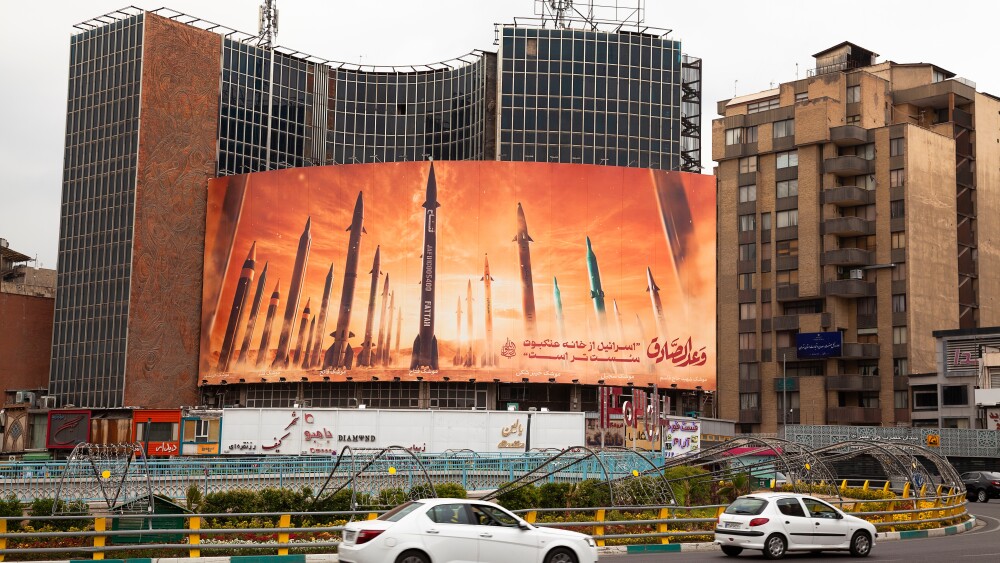After three days of airstrikes and likely commando missions, the Israeli operation in Iran has expanded to include softer targets, such as refineries and petrochemical plants, which could be more dangerous for the survival of the regime.
Israeli officials, politicians, and many Iranian opposition figures have been urging Iranians since June 14, 2025, to seize what they call a once-in-a-lifetime opportunity. In the wake of the strikes and chaos, they are calling on people to take to the streets and bring down the regime while it remains disoriented and vulnerable.
It is not clear to what extent the regime’s forces of repression have weakened.
So far, except a large wave of social media posts praising Israel’s actions, Iranians have stayed home, perhaps waiting to see more chaos before they act. It is not clear to what extent the regime’s forces of repression have weakened, and some have called for Israel to directly target bases and facilities in the capital serving special anti-protest armed units.
A source in Iran told the Middle East Forum Observer that while many people are pleased to see the regime shaken, most are watching events unfold from the sidelines. Rather than joining protests, many middle-class residents of Tehran have chosen to escape the chaos by heading to the Caspian coast. The source, a businessman, said his primary concern now is recovering money owed to him by customers both in Iran and abroad.
He noted that ordinary citizens have not forgotten the brutal crackdowns on protests in 2017, 2019, and 2022. While they are hesitant to take action for now, many are watching the Israeli operation with a mix of astonishment and curiosity.
The Israeli military urged Iranians living near weapons sites to evacuate, as Prime Minister Benjamin Netanyahu warned that the strikes carried out so far were only a prelude to what Iran could face in the days ahead.
On June 14 and 15, Israel targeted many energy installations, especially around the capital, destroying oil depots and a refinery. This was in retaliation for Iranian ballistic missile attacks on Israeli civilian areas that were somewhat successful, killing several people and wounding many others.
While the first 24 hours of the Israeli operation focused exclusively on military and political targets, the latest strikes are beginning to impact the general population. In the coming days and weeks, fuel and electricity shortages are expected to worsen, an Iranian journalist warned, causing widespread disruption. The economy is likely to grind to a halt, leading to rising unemployment and surging inflation.
Since June 12, the Iranian currency has dropped by nearly 15 percent—an abrupt devaluation that typically fuels rapid inflation. To contain the slide, the government is now forced to inject U.S. dollars and other foreign currencies into the market. But this comes at a high cost; the regime must preserve its dwindling hard currency reserves to ensure its key cadres remain paid, loyal, and fed.
There have been hints of desertions from [Iran’s] armed forces.
There have been hints of desertions from the armed forces. A commander has warned that those not reporting for duty will be considered traitors. There were reports on June 14 that several airliners took off from Tehran, some headed for Russia, while the airspace is officially closed. Iranians on social media speculated that the leadership or their families are fleeing the country, although there were reports that Russia was evacuating families of its embassy and other staff.
Mostafa Mehraeen, a sociology professor in Tehran, wrote in an open letter to Ali Khamenei and other officials of the regime: “Who or what has given you the right or legitimacy to drive our country and its integrity—bequeathed to us by the great figures and martyrs of this land—toward destruction?”
He continued, “Whether you accept it or not, the people of this country no longer see you as their legitimate rulers. Your continued presence in politics is a disgrace to reason, morality, and the political history of this land.”
Netanyahu declared on the second day of the operation that Iran’s leaders were “packing their bags,” and he vowed to unleash the full force of Israel’s air power on Tehran. His warning came as Israel expanded its list of targets to include gas and oil facilities. Many Iranians and others see the Israeli determination as a sign of aiming not just to prevent nuclear weapons, but a quest for regime change.






